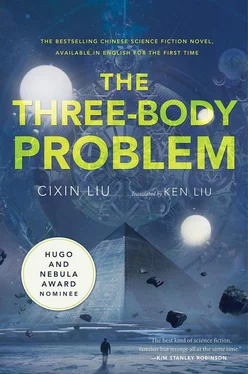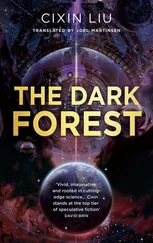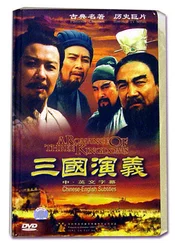The third person in the office surprised Wang. It was Wei Cheng, the reclusive, mysterious husband of Shen Yufei from the Frontiers of Science. Wei’s hair was a mess. He looked up at Wang, but seemed to have forgotten they had met.
“I’m sorry to bother you, but at least it looks like you weren’t asleep,” Da Shi said. “I have to deal with something that I haven’t told the Battle Command Center yet, and I need your advice.” He turned to Wei Cheng. “Tell him what you told me.”
“My life is in danger,” Wei said, his face wooden.
“Why don’t you start from the beginning?”
“Fine. I will. Don’t complain about me being long-winded. Actually, I’ve often thought about talking to someone lately….” Wei turned to look at Xu Bingbing. “Don’t you need to take notes or something?”
“Not right now,” Da Shi said, not missing a beat. “You didn’t have anyone to talk to before?”
“No, that’s not it. I was too lazy to talk. I’ve always been lazy.”
WEI CHENG’S STORY
I’ve been lackadaisical since I was a kid. When I lived at boarding school, I never washed the dishes or made the bed. I never got excited about anything. Too lazy to study, too lazy to even play, I dawdled my way through the days without any clear goals.
But I knew that I had some special talents others lacked. For example, if you drew a line, I could always draw another line that would divide it into the golden ratio: 1.618. My classmates told me that I should be a carpenter, but I thought it was more than that, a kind of intuition about numbers and shapes. But my math grades were just as bad as my grades in other classes. I was too lazy to bother showing my work. On tests, I just wrote out my guesses as answers. I got them right about eighty to ninety percent of the time, but I still got mediocre scores.
When I was a second-year student in high school, a math teacher noticed me. Back then, many high school teachers had impressive academic credentials, because during the Cultural Revolution many talented scholars ended up teaching in high schools. My teacher was like that.
One day, he kept me after class. He wrote out a dozen or so numerical sequences on the blackboard and asked me to write out the summation formula for each. I wrote out the formulas for some of them almost instantaneously and could tell at a glance that the rest of them were divergent.
My teacher took out a book, The Collected Cases of Sherlock Holmes . He turned to one story— “A Study in Scarlet,” I think. There’s a scene in it where Watson sees a plainly dressed messenger downstairs and points him out to Holmes. Holmes says, “Oh, you mean the retired sergeant of marines?” Watson is amazed by how Holmes could deduce the man’s history, but Holmes can’t articulate his reasoning and has to think for a while to figure out his chain of deductions. It was based on the man’s hand, his movements, and so on. He tells Watson that there is nothing strange about this: Most people would have difficulty explaining how they know two and two make four.
My teacher closed the book and said to me, “You’re just like that. Your derivation is so fast and instinctive that you can’t even tell how you got the answer.” Then he asked me, “When you see a string of numbers, what do you feel? I’m talking about feelings.”
I said, “Any combination of numbers appears to me as a three-dimensional shape. Of course I can’t describe the shapes of numbers, but they really do appear as shapes.”
“Then what about when you see geometric figures?” The teacher asked.
I said, “It’s just the opposite. In my mind there are no geometric figures. Everything turns into numbers. It’s just like if you get really close to a picture in the newspaper and everything turns into little dots.”
The teacher said, “You really have a natural gift for math, but… but…” He added a few more “but”s, pacing back and forth as though I was a difficult problem that he didn’t know how to handle. “But people like you don’t cherish your gift.” After thinking for a while, he seemed to give up, saying, “Why don’t you sign up for the district math competition next month? I’m not going to tutor you. I’d just be wasting my time with your sort. But when you give your answers, make sure to write out your derivations.”
So I went to the competition. From the district level up through the International Mathematics Olympiad in Budapest, I won first place each time. After I got back, I was accepted by a top college’s math program without having to go through the entrance examination….
You’re not bored by my talking all this time? Ah, good. Well, to make sense of what happened later, I have to tell you all this. That high school math teacher was right. I didn’t cherish my talent. Bachelor’s, master’s, Ph.D.—I never put much effort into any of them, but I did manage to get through them all. However, once I graduated and went back to the real world, I realized that I was completely useless. Other than math, I knew nothing. I was half asleep when it came to the complexities of relationships between people. The longer I worked, the worse my career. Eventually I became a lecturer at a college, but I couldn’t survive there either. I just couldn’t take teaching seriously. I’d write on the blackboard, “easy to prove,” and my students would still struggle for a long while. Later, when they began to eliminate the worst teachers, I was fired.
By then I was sick of everything. I packed a bag and went to a Buddhist temple deep in the mountains somewhere in southern China.
Oh, I didn’t go to become a monk. Too lazy for that. I just wanted to find a truly peaceful place to live for a while. The abbot there was my father’s old friend—very intellectual, but became a monk in his old age. The way my father told it, at his level, this was about the only way out. The abbot asked me to stay. I told him, “I want to find a peaceful, easy way to just muddle through the rest of my life.” The abbot said, “This place isn’t really peaceful. There are lots of tourists, and many pilgrims too. The truly peaceful can find peace in a bustling city. And to attain that state, you need to empty yourself.” I said, “I’m empty enough. Fame and fortune are nothing to me. Many of the monks in this temple are worldlier than me.” The abbot shook his head and said, “No, emptiness is not nothingness. Emptiness is a type of existence. You must use this existential emptiness to fill yourself.”
His words were very enlightening to me. Later, after I thought about it a bit, I realized that it wasn’t Buddhist philosophy at all, but was more akin to some modern physics theories. The abbot also told me he wasn’t going to discuss Buddhism with me. His reason was the same as my high school teacher’s: With my sort, he’d just be wasting his time.
That first night, I couldn’t sleep in the tiny room in the temple. I didn’t realize that this refuge from the world would be so uncomfortable. My blanket and sheet both became damp in the mountain fog, and the bed was so hard. In order to make myself sleep, I tried to follow the abbot’s advice and fill myself with “emptiness.”
In my mind, the first “emptiness” I created was the infinity of space. There was nothing in it, not even light. But soon I knew that this empty universe could not make me feel peace. Instead, it filled me with a nameless anxiety, like a drowning man wanting to grab on to anything at hand.
So I created a sphere in this infinite space for myself: not too big, though possessing mass. My mental state didn’t improve, however. The sphere floated in the middle of “emptiness”—in infinite space, anywhere could be the middle. The universe had nothing that could act on it, and it could act on nothing. It hung there, never moving, never changing, like a perfect interpretation for death.
Читать дальше












